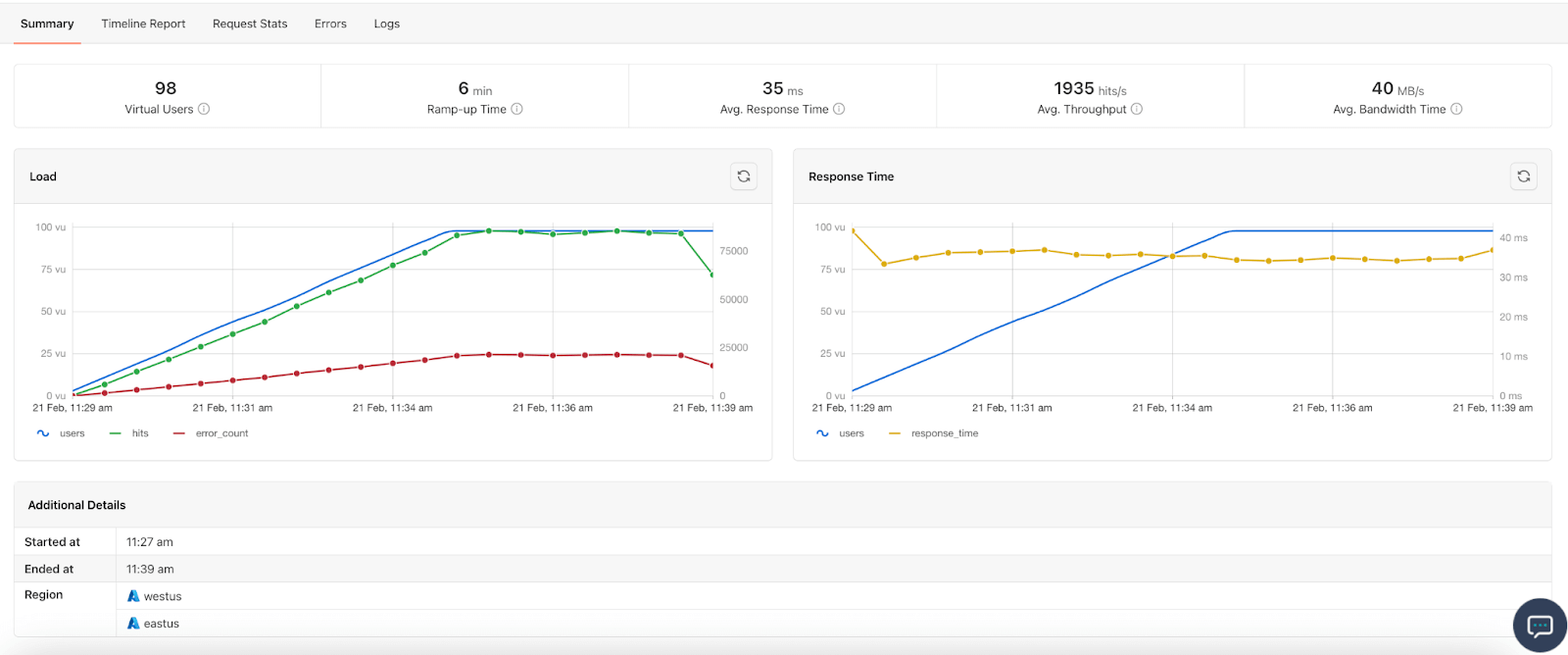Simplifying Performance Testing with HyperExecute
Aman Chopra
Posted On: March 7, 2024
![]() 15948 Views
15948 Views
![]() 6 Min Read
6 Min Read
Imagine a sleek sports car, meticulously designed and boasting impressive features. Yet, on the racetrack, it sputters and stalls, leaving the driver frustrated and the competition in the dust. Not cool, right?
When a user tries out a new website or application, they face this same instance. Suppose you have just downloaded a new app and it takes ages to load, buttons are slow to respond and crashes at the wrong time are getting on your nerves. Performance testing can help you avoid such scenarios.
As QA professionals, Product Managers or Developers; we all grasp the importance of extensive testing for an impeccable user experience. You take time to write smoke tests and regression tests that will ensure functionality works fine but have you ever thought about “what happens when my user base explodes? Is my app going to be able to handle it?”
This is where performance testing comes in as a critical piece of the puzzle for QA teams who aim to ensure smooth interactions with their users. It’s also necessary to have such tools as HyperExecute which make performance testing easy and efficient.
If you’re looking to improve your Performance Testing interview skills, check out our curated list of Performance Testing interview questions and answers.
Optimizing QA Practices with Performance Testing Insights
As a QA professional, familiar with Smoke and Regression Testing, you may already know how important they are to guaranteeing that the core functionality of an application is working properly. However, these traditional ways often don’t handle performance as an essential aspect.
Smoke and regression testing serve the purpose of verifying “what works” but they alone cannot give all the answers. They don’t tell you how your application will work under real-world circumstances with changing user loads and unexpected situations.
This is where Performance Testing comes in handy. It is a systematic process of evaluating software for speed, responsiveness, stability, and scalability under various workload conditions. It involves simulating real-world scenarios to assess how the application performs under stress, peak loads, and normal usage.
While performance testing often gets associated with speed we should remember it goes beyond that:
- Responsiveness: How fast does the system respond to inputs from users in order to ensure smooth operation?
- Scalability: This involves testing how well the application handles different levels of load – ranging from just a few users all the way up to peak traffic periods.
- Stability: Evaluate the application’s ability to maintain consistent performance over extended periods, preventing crashes or outages.
- Resource Utilization: Optimizes resource allocation by identifying areas where the application might be using too much memory or processing power.
This is where performance testing rises as the ultimate friend to traditional QA practices.
But, navigating the expansive array of performance testing tools can be overwhelming. With numerous options, each presenting its own complexities, selecting the most suitable one can feel like a formidable challenge.
Integrating HyperExecute for Simplified Testing

HyperExecute is a platform designed to empower professionals across the development lifecycle, from QA specialists to developers and managers, and transform their testing journey from an arduous climb to an exhilarating ascent.
HyperExecute serves as a trusted companion, equipping you with the tools and capabilities to conquer not only performance testing challenges but also a wide range of testing needs.
Its exceptional speed, integration capabilities, and diverse features can entrust you, to streamline your entire testing process, ushering in an era of peak application quality and performance and transforming your testing game from lag to lightning.
One standout feature of HyperExecute is the Auto Split feature. This feature enhances testing performance by allowing you to add concurrency for faster results, prioritize failed test cases for quicker feedback in subsequent executions, and easily distribute tests. To learn more about this amazing feature of HyperExecute watch the following video below.
It bridges the gap between technical aspects and the user experience, making it valuable for:
QA Professionals:
- Effortless Integration: Forget learning new tools from scratch! HyperExecute seamlessly integrates with your existing workflows. Utilize familiar JMeter test plans within the platform’s cloud environment, ensuring a smooth transition and minimizing disruption.
- Real-Time Insights, Real-Time Decisions: Gain valuable real-time insights into critical performance metrics, allowing you to identify bottlenecks and make informed decisions during the testing process. This proactive approach saves you valuable time and ensures you’re addressing issues as they arise, preventing potential roadblocks later in development.
- Simulating the Real World: Customize load distribution to accurately reflect diverse usage patterns. HyperExecute allows you to simulate various real-world scenarios, from a handful of users to peak traffic situations. This ensures your tests effectively assess your application’s performance under realistic conditions, providing valuable insights into its ability to handle different user loads.
Product Managers:
- Efficient Process and Resource Optimization: HyperExecute simplifies the entire testing process by integrating easily with your existing CI/CD pipeline. This eliminates the need for manual setup and configuration of testing environment.
- Data Backed Decisions and Cost Optimization: Performance testing can provide significant cost savings by helping diagnose every challenging issue such as resource allocation, infrastructure optimization, among others.
- Enhanced User Experience: With several other features that come with it, this makes HyperExecute the best platform for user experience improvement. You can get all these features from one platform only, so you can keep your customers happy.
Developers:
- Faster Feedback & Collaboration: A faster feedback loop can be established by using HyperExecute, thereby increasing the chances of resolving some issues before they become major problems in development processes and QA collaboration.
- Proactive Performance Optimization: By identifying performance bottlenecks early on, costly delays can be avoided and smooth launches assured.
Conclusion
HyperExecute bridges the gap between technical prowess and user experience, empowering professionals across the development lifecycle to achieve peak application performance.
QA professionals can gain real-time insights, seamlessly integrate existing workflows, and simulate real-world scenarios for a comprehensive understanding of your application’s behavior.
Product managers can make data-driven decisions, optimize resources, and ensure exceptional user experiences that drive loyalty and ROI.
Developers can identify and address performance bottlenecks early, collaborate effectively with QA teams, and ensure a smooth and successful launch.
Don’t wait! Start your free trial today and experience the HyperExecute difference.
Got Questions? Drop them on LambdaTest Community. Visit now
















